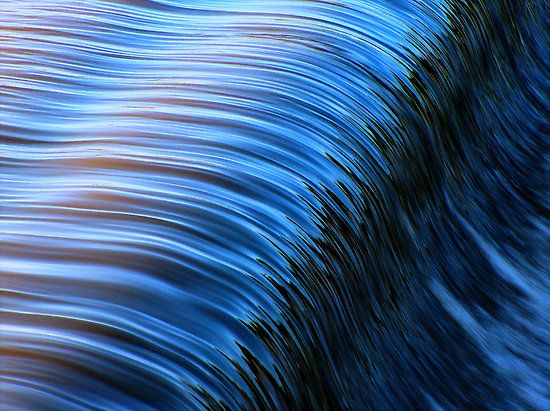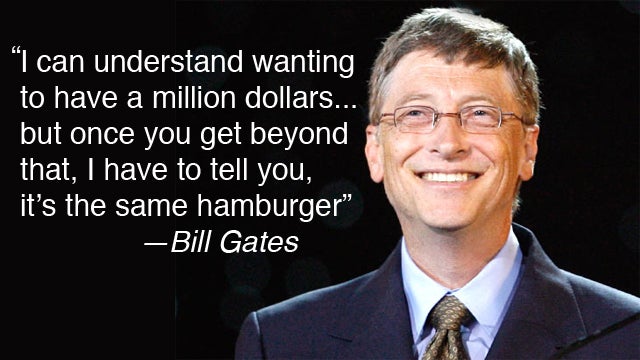Flow and Happiness

Every now and then I read about rich people talking about the correlation between money, happiness and self fulfillment. More often than not, it's the lack of correlation that they talk about.
There's no doubt that one has to have access to a certain level of income to satisfy the layers in the hierarchy of needs. On the other hand it's a well known idea & experience that more money has diminishing returns on happiness:

Hanging out in ibiza with a bunch of friends and partying with famous people, able to do whatever I want, and I've never felt more isolated.
— Markus Persson (@notch) August 29, 2015I've started reading this book, Flow: The Psychology of Happiness by Mihaly Csikszentmihalyi. It starts with a simple claim:
We humans have a built-in dissatisfaction with what we have and what we own. Material world does not make us happy. Unless we can moderate this dissatisfaction and start enjoying the moment we'll be disappointed.
This has always made perfect sense to me. Materials by themselves aren't worth anything. At the end of the day it all comes down to what we do with them, or most importantly, what we actually do with our lives.
Here's another excerpt from a WSJ article "Can Money Buy You Happiness?":
In short, this latest research suggests, wealth alone doesn’t provide any guarantee of a good life. What matters a lot more than a big income is how people spend it. For instance, giving money away makes people a lot happier than lavishing it on themselves. And when they do spend money on themselves, people are a lot happier when they use it for experiences like travel than for material goods.
Enter Flow
Lately, I've been discovering that flow is one of the sources of happiness in life (maybe the most powerful one!). It is also a very rewarding state to be in. Pleasure is also a source of happiness, but unlike pleasure, the enjoyment that comes with flow leads to growth and higher levels of complexity.
Flow is defined in Wikipedia as:
In positive psychology, flow, also known as the zone, is the mental state of operation in which a person performing an activity is fully immersed in a feeling of energized focus, full involvement, and enjoyment in the process of the activity. In essence, flow is characterized by complete absorption in what one does.
8 Major Conditions of Flow
In his book, Mihaly Csikszentmihalyi describes the 8 components of flow-like activities. Know these conditions and try to apply them to what you do everyday.
-
Clear Goals. Knowing what we have to do very clearly. Not only the big goal, but also each step of these activities should be well defined. Playing chess, tennis or a musical instrument naturally falls into these type of activities, but with a bit of conscious effort we can apply this idea to many day to day activities.
-
Immediate Feedback. Knowing how well we are doing. Getting clear and constant flow of feedback. Not having this type of feedback makes it easier to get distracted.
-
Challenges of the activities are met with the right level of skills of the person. What needs to be done is in balance with what we can do. When a job is hard, demanding or very easy we can get stressed or distracted. If it's a match, then it becomes enjoyable.
-
Feeling a focus and concentration on what you're doing. In flow, the split attention (that we usually have) focuses into a single beam of attention. Here we can achieve so much more.
-
Everyday's frustrations are gone. During flow, we don't worry about anything anymore because our mind is not wandering - no future, nor past. It's a form of escape from the real world and creating different realities.
-
You feel that you can be in control of your life, your actions, your experience. The sense of control is a great feeling, it's something that we don't feel during our everyday lives.
-
Loose a sense of subconsciousness - the ego defense. We usually worry about how other people think of us. It's a feeling of self-monitoring, a state of defensiveness, a frequent questioning of how we look and so on. During flow we go beyond ego (transcendence). One of the paradoxes of flow is that during the experience we forget about ourselves but after the experience we come back stronger, because we know that we've accomplished something and that makes a positive impact on our self confidence.
-
Sense of time seems to be transformed. During flow, sometimes hours get condensed into minutes. Sometimes a couple of seconds feel like minutes, because so much is packed in the moment (for physical activities). Time adopts itself to your activities rather than the other way around. Rather than you boxing your life into time, you can change the time.
Flow vs Agile teams & Open Offices
Programming is a great flow-like activity. It also naturally fits all conditions above, and yet the agile movement and the open-office model has started an open season on flow: kill on sight!
I've done a google search on "open office productivity" and it seems like in the last few years it has attracted a lot of negative criticism. Some examples are "The open-office trend is destroying the workplace", "Open-Office Backlash: Seeking Productivity in a Noisy World", "The open-office trap".
There's not much consensus around the topic. Facebook is the biggest fan of the open-office model while Stack Overflow made it clear that they still believe in private offices. It also appears that Microsoft is still pushing back on the open-office trend by saying: "Too much togetherness can sap productivity and creativity".
Does flow matter to you? And how do you like to work within your team?
~Hakan
